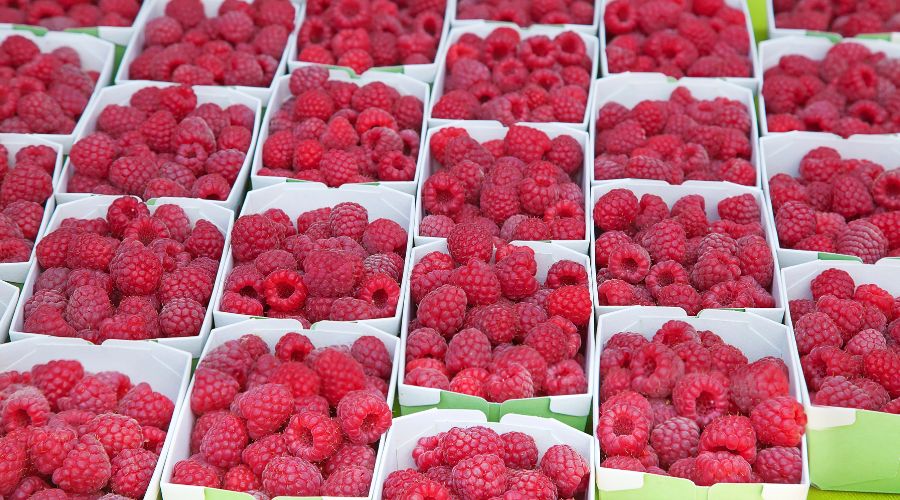Compound found in two popular fruits could help prevent bowel cancer
20th December 2024
New research is looking into the ability of resveratrol, found in blueberries and raspberries, to inhibit cancer cells.

Scientists are exploring how resveratrol, which is found in some fruits, could reduce the risk of bowel cancer.
Resveratrol is found in the skin of red grapes, blueberries, raspberries and peanuts. As a polyphenol chemical it’s rich in antioxidants, which can help prevent or delay oxidative stress, which is known to damage our cells.
In a previous study, led Professor Karen Brown at the University of Leicester, the team found that purified resveratrol can inhibit the growth of cancer cells even at low doses.
Through years of research, Brown has found that resveratrol can reach the bowel in an undamaged state and doesn’t get broken down in the stomach.
Her team also found that when it reaches the bowel, it can slow down tumour growth in mice and human tissue samples.
Potential for supplements
However, purified resveratrol isn’t the same as the one found in grape juice or wine.
In fact, alcohol is a known cause of cancer and is linked to an increased risk of seven different types of cancer.
Brown’s new trial is into whether purified resveratrol supplements could help to prevent bowel cancer.
Colo-Prevent is a trial being led by the University of Leicester and the National Institute for Health and Social Care Research (NIHR) Leicester Biomedical Research Centre.
READ MORE: Iconic jam business blends a rich history with modern techniques
READ MORE: BAPL issues inflation warning and talks about what to expect in 2025
It will test multiple potential prevention drugs for bowel cancer, such as over the counter drugs like aspirin and metformin, and food supplements like resveratrol.
Over the coming years, the trial will recruit 1,300 patients at 60 locations in England and Wales.
It’s recruiting people aged 50-73 who had polyps found during their bowel cancer screening.
Polyps are small growths in the lining of the bowel that in some cases could become cancer in the future.
If the trial is successful, any of the treatments tested could be offered to all people eligible for bowel cancer screening to reduce the chance of bowel polyps forming, and with that reduce the risk of bowel cancer in the future.
Read more fruit news.
